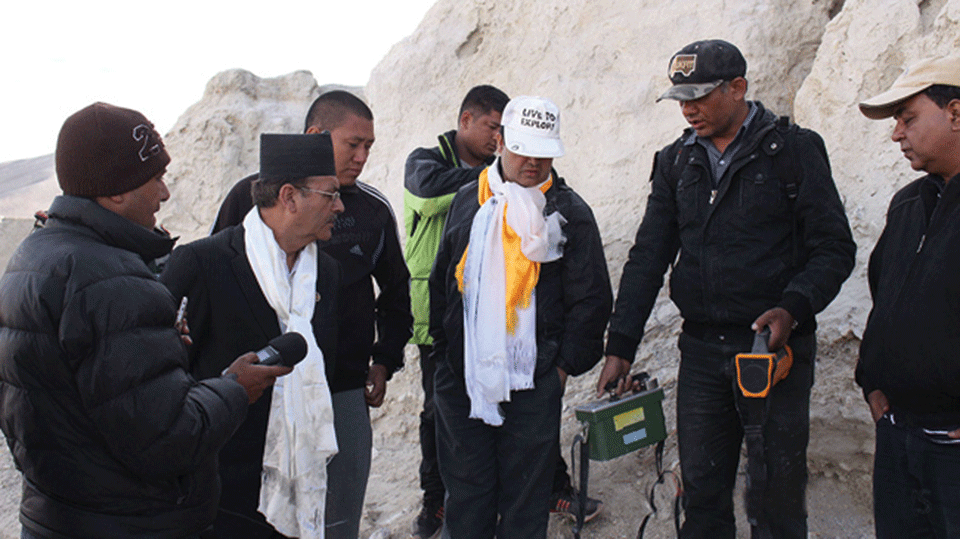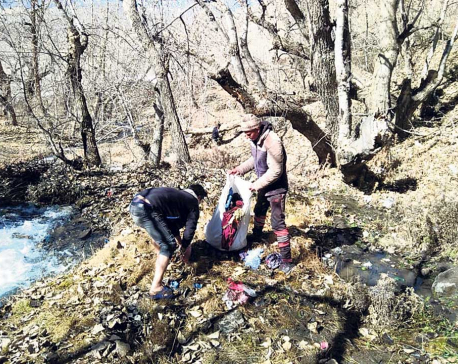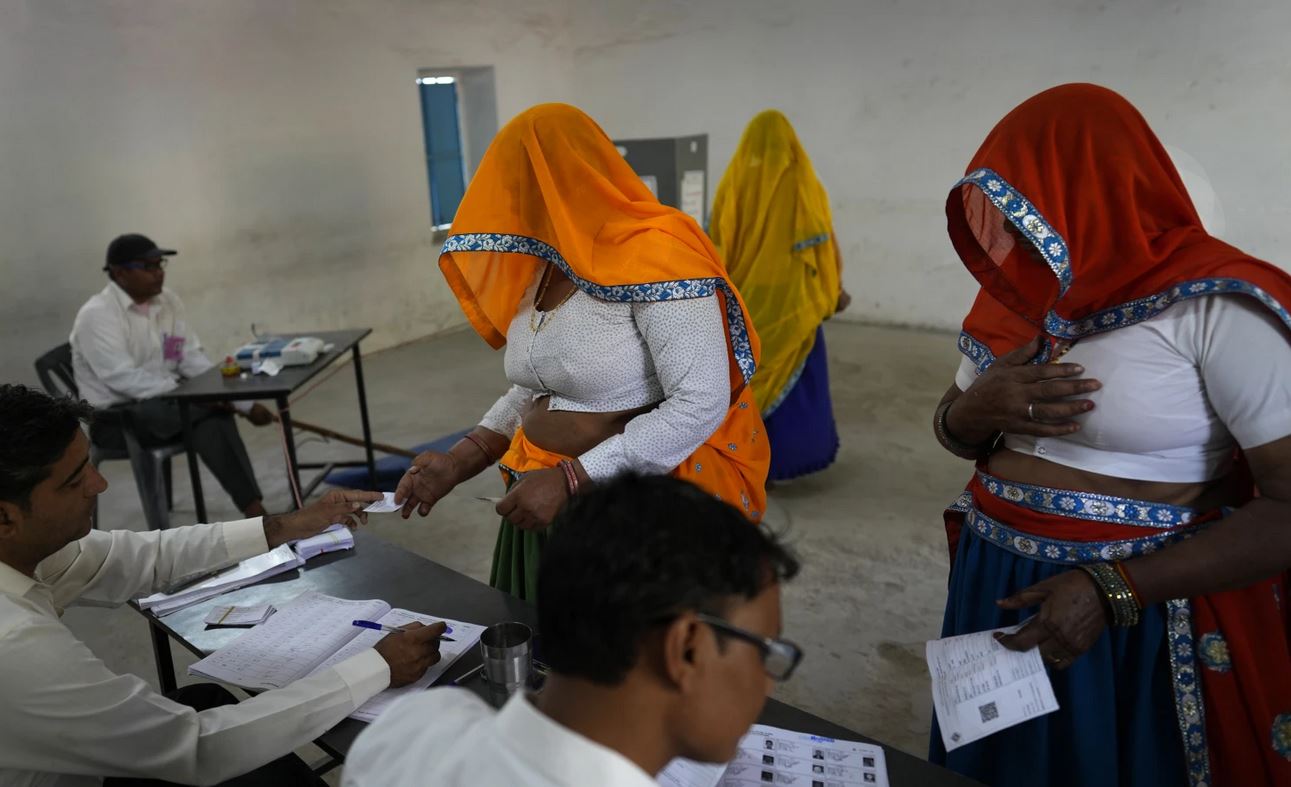
OR


Dr Mahesh K Maskey
The author, former Ambassador of Nepal to China, is also a former Vice President of International Physicians for Prevention of Nuclear Warnews@myrepublica.com
For Nepal, to venture into uranium production and trade is akin to waving red scarf to ramming bulls and destabilizing peace diplomacy
A hasty push for endorsement of the ‘nuclear bill’ in the parliament is being made amidst rumors of the discovery of uranium mines near trans-Himalayan terrain of Lo Mangthang of Mustang district. In fact, Office of Investment Board’s website claims that “a large deposit of uranium has been discovered in Upper Mustang region of Nepal... spread over an area 10 km long and 3 km wide and could be of highest grade. These findings have also been confirmed by the International Atomic Energy Agency.” The bill, tabled by Ministry of Education, Science and Technology, unabashedly grants permission to uranium mining, enrichment and all steps of nuclear fuel cycle, import and export of uranium, plutonium and its isotopes, and use Nepal as transit for storage of the nuclear and radio-active substances. The scale of uranium production (and possibly of trade), in the name of nuclear technology, is staggering. Its potential to damage people’s health and environment, and also international relations is overwhelming to say the least. Lying dormant for a decade in a coma, the nuclear bill has suddenly come to life in the past few months amidst alluring whispers of uranium mine discovery and then landed directly in the parliament. Could it be a simple co-incidence? I don’t think so.
Questionable arguments
The protagonists of this bill have moved forward with an unparalleled gusto, effectively evading the need for public discussion on matter of such hazardous consequence which may affect not only our nation but impinge on other countries also. Article 34(1 and 2) in relation to Trans-border disaster mentions that if radioactive pollution affects other countries, then Nepal has to inform International Atomic Energy Agency and the respective country to mitigate the situation. What enterprise is so important for Nepal to risk the spread of radioactive pollution to neighboring countries and get penalized for it?
The rationale for a bill of such destructive potential, officially, is to establish nuclear research center (NRC) in Nepal. But there is not a single word regarding the concept, definition or mode of operation of such research center in this bill. What it deals with is establishment and licensing of nuclear research reactors (NRR) and facilities to enrich uranium. It insists on nuclear reactor based technology when much safer and cheaper technologies of particle accelerators, such as cyclotrons, are available for both radioisotope production and nuclear science research. Nepali nuclear physicists and chemists admit that Nepal will not have the capacity to establish, operate and maintain such nuclear research reactors until the next 15 to 20 years. Yet some want to keep its provision as a future enterprise, oblivious of the fact that it will give a green signal to uranium mining now. They may have good intentions but are unmindful of the fact that reactor could serve as an undercover backdoor to uranium mining and abuse of nuclear material, rather than promotion of nuclear science. The old adage ‘road to hell is paved with good intentions’ sounds disturbingly true in Nepali context.
There are suppressed whispers in the air about ‘Uranium Shortcut to Prosperity.’ On closer look, it becomes evident that to walk on this road to ‘prosperity’ Nepal has to first mine, process and enrich uranium, and then either use it domestically or sell it to other countries to get profit. Radioisotopes are made from enriched uranium and the whole process of uranium enrichment incurs astronomical cost. For economic reason such path of radioisotopes production will certainly lead to more adversity rather than prosperity. Second use of uranium is for generation of electricity. In a few years Nepal will have surplus of electricity generated by clean renewable energy sources. Why should Nepal go for dirty and dangerous nuclear energy electricity? The third option then is to sell processed and enriched uranium to other countries. If we take a moment to think which country Nepal will approach to sell its uranium, we will realize how unthinkable such thought is. To venture into uranium production and trade, in a country surrounded by nuclear power countries, is akin to waving red scarf to ramming bulls, and destabilizing the powerful initiative of Nepal’s peace diplomacy.
For all these reasons and many more, parliamentarians across different political convictions have raised serious concerns about this bill, a sign that it will not get through unchallenged. Confused statements about ‘good use’ of uranium were also noticeable in that debate. Those who are dreaming that uranium will make Nepal rich need to have a wakeup call. Like all other natural resources governed by power relations, the ultimate beneficiary is the powerful and the rich, outside and inside the country, at the cost of untold damage to the land , waters, environment and the people.
Learn from Niger
In this context, there may be a lesson or two for Nepal to learn from the ‘curse of uranium’ in Niger, the poorest of poor country in the world. What should be underlined, however, is that Nepal is situated in far more difficult geostrategic location than Niger when it comes to handling nuclear fissile materials such as Uranium and Plutonium.
Niger is a landlocked country in West Africa with a population of 21 million and area of 1.27 million square kilometers. In Human Development Index of 2018, it ranked 189th among 189 countries. It is the fourth largest uranium producer in the world, almost all of which goes to France. It was a French colony until 1960, and when it became independent France retained monopoly on its uranium. An estimated one third of electricity in France owes to Niger uranium while more than 80 percent of Niger people live without electricity. Uranium supply to France constitutes 70 percent of Niger’s GDP but return from it is only five percent. In the last 60 years, the dream of Niger’s prosperity and decent lives through uranium has turned into a nightmare, often dubbed as ‘curse of uranium.’ Perpetually trapped in poverty, the Niger people working in and around uranium mines suffer from pollution, radiation related disease, unexplained deaths and congenital malformation. Poisoning of water, land and air by radioactive pollution in those areas have become the dark tales of uranium mining. In the dawn of independence, people thought Uranium is a blessing and pinned a great hope on it for prosperity. Now they have seen what disaster uranium can bring. It should also not be forgotten that Niger was falsely blamed to have sold the uranium ore cakes to Saddam Hussein’s Iraq and had suffered tremendously to come clean of it.
Perhaps these lessons may not be needed. The wisdom of our leaders may shine to its brilliance even in twilight hours and unexpected may happen. Although the bill has been rashly tabled in the parliament, it may be thoroughly revised and rewritten to meet the actual need of the country which genuinely calls for a “radio-active substances act” to regulate the safe use of radioactive sources and equipments, rather than a “nuclear act.” Our parliamentarians may make sense of this 26 page mess of a draft that has been copied directly (and inappropriately in many places) from International Atomic Energy Agency document. They may be able to revise this bill entirely, orienting it towards academic research and trimming it off the baggage of clauses that deal with nuclear materials, reactors and licensing right to individuals and organizations. Let us hope that they will steer the country toward safer, non-reactor road to prosperity. But it is also likely that attempts to push for uranium production and trade and nuclear reactors will continue by shifting responsibility of such operation to the state rather than individuals or organizations. In that case the lessons from Niger should be even more instructive.
The author, former Ambassador of Nepal to China, is also a former Vice President of International
Physicians for Prevention of Nuclear War
You May Like This

Waste continues to pile up in Muktinath
MUSTANG, Nov 3: Every day, thousands of domestic and international pilgrims throng Muktinath, the famous religious shrine in Mustang. In... Read More...

Polls prevent many Mustang locals from moving to lowlands despite growing chill
KASKI, Oct 30: Every year before the end of October, a majority of houses in Mustang are empty with most of... Read More...

Wounded leopard found in Mustang
BENI (Myagdi), July 19: A wounded snow leopard has been found at Chhusang-5 of Mustang. ... Read More...




Just In
- Rainbow tourism int'l conference kicks off
- Over 200,000 devotees throng Maha Kumbha Mela at Barahakshetra
- Indians vote in the first phase of the world’s largest election as Modi seeks a third term
- Kushal Dixit selected for London Marathon
- Nepal faces Hong Kong today for ACC Emerging Teams Asia Cup
- 286 new industries registered in Nepal in first nine months of current FY, attracting Rs 165 billion investment
- UML's National Convention Representatives Council meeting today
- Gandaki Province CM assigns ministerial portfolios to Hari Bahadur Chuman and Deepak Manange






_20220508065243.jpg)








Leave A Comment